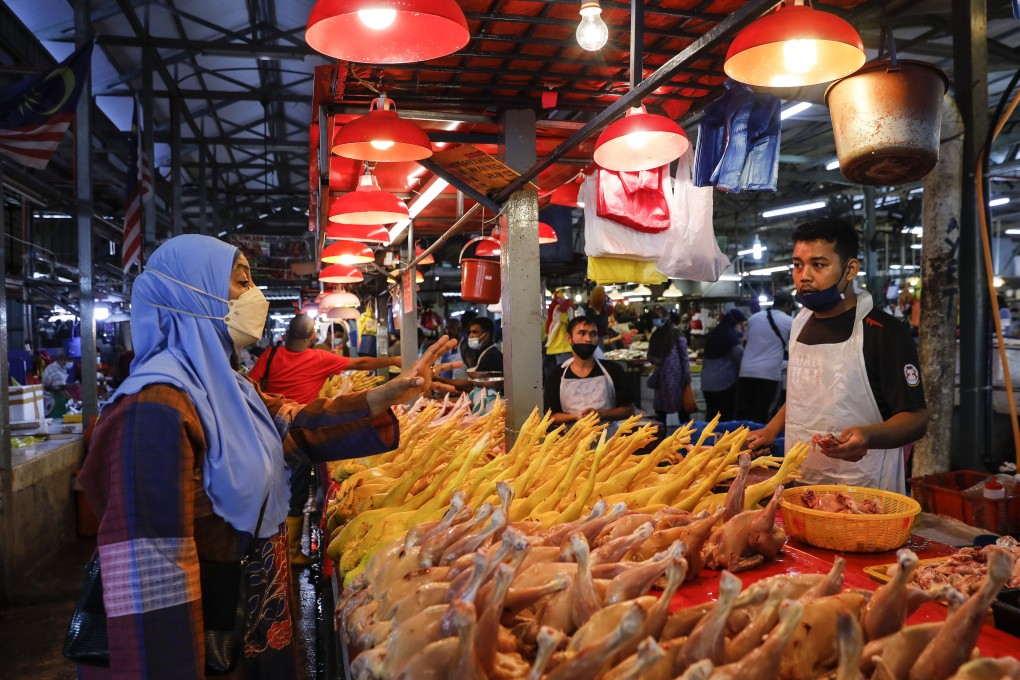Advertisement
From Malaysia to India, how are export bans on chicken, wheat, sugar affecting Asia?
- The recent moves by Asian governments to save their own food supplies have sent already inflated food prices soaring across the region amid the Ukraine war
- While protectionism lowers the threat of civil unrest, analysts say it may be ineffective in keeping prices of food staples low and could even hurt producers as buyers diversify
Reading Time:7 minutes
Why you can trust SCMP
1

Asia has been slammed by a wave of protectionism in recent months, with countries enacting food export restrictions on items from palm oil to wheat, sugar and chicken.
Advertisement
The disruptions have sent already inflated food prices soaring, with Singapore’s food price increase in April hitting levels not seen since March 2009 and Malaysians saying the once affordable everyday chicken is now a weekly luxury.
Countries with export controls say the restrictions have been necessary to safeguard supplies for their own populations.
“The government’s priority is our own people,” said Malaysian Prime Minister Ismail Sabri Yaakob on May 23, when he announced a halt on the country’s monthly export of 3.6 million chickens to neighbouring Singapore.
Malaysia has been facing a chicken shortage after farmers cut back on the number of birds they rear due to rising prices of chicken feed.
Indonesia – the world’s largest palm oil producer, exporting palm oil products worth US$15 billion in 2020 – stopped the export of palm oil for three weeks from April 28, hoping to save the commodity for its citizens who use it for cooking. The ban is now lifted but there are still controls on how much palm oil can be exported.
Advertisement
After a heatwave dented crop yields, India on May 14 banned wheat exports, dealing a further blow to global prices. India is the second-largest exporter of wheat after Ukraine, whose exports have been decimated by its ongoing war with Russia.
Two weeks after that, New Delhi said it would also limit the export of sugar, capping it to 10 million tonnes until September. India produced 35 million tonnes this season and it wants to save this for citizens until new sugar enters the market in November.

Advertisement